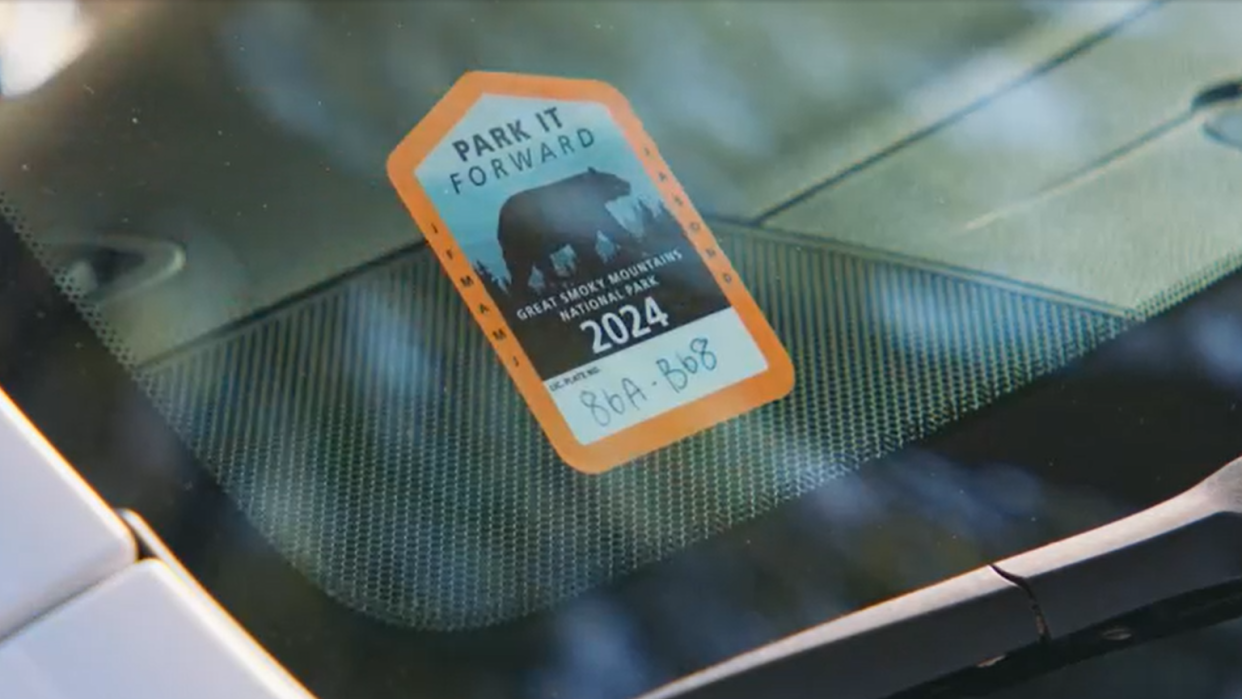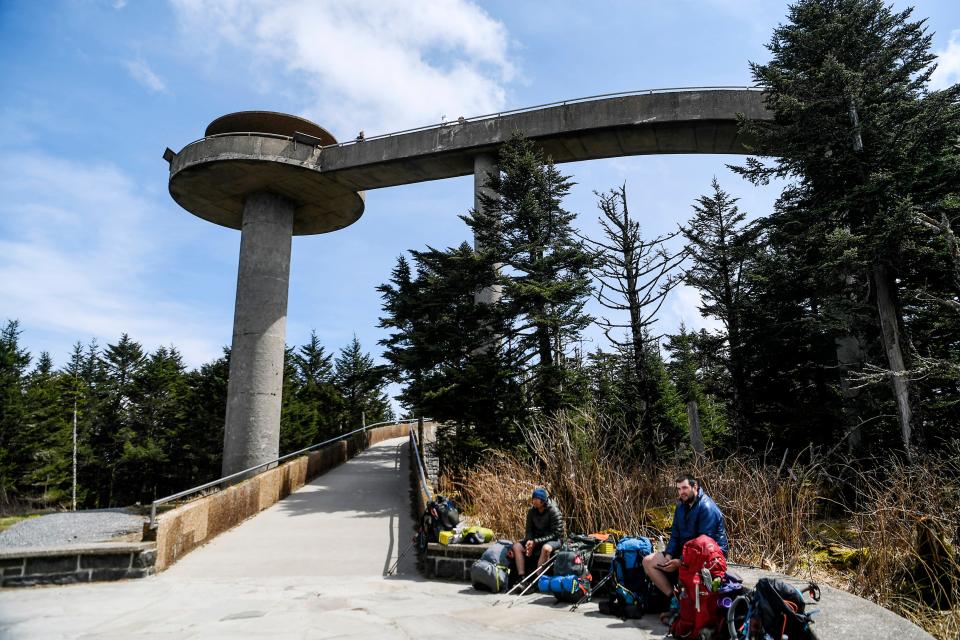Great Smoky Mountains parking tags: Can visitors use other passes to park for free?

With the announcement of a parking tag requirement beginning March 1, some Great Smoky Mountains National Park visitors have asked the Citizen Times whether other National Park Service passes already have them covered, whether they can reserve parking spots and what to do if they come to a packed lot.
Following are the answers and more on the Smokies' first-ever parking pass.
Question: If I have another parks pass, do I still need to pay for a Smokies parking tag?
Answer: In an email to the Citizen Times, Smokies spokesperson Emily Davis referred to an online FAQ, which says that interagency passes — like the Annual Pass, Military Annual Pass, Military Lifetime Pass, 4th Grade Pass, Senior Pass, Access Pass and Volunteer Pass — do not void a parking tag requirement.
That is, you'll still need to pay to park.
Past reporting:Great Smoky Mountains National Park to charge for parking: How to get a tag
There are some exceptions. School groups, permitted researchers, people at the park for funerals or First Amendment activities or other "special" reasons and people with a disabled placard or license plate do not need to display a parking tag. Those passing through the park or stopping for less than 15 minutes do not need a tag.
Also, leaders of American Indian tribes including the Eastern Band of Cherokee Indians, will get free tags to then distribute "to Tribal citizens who are coming to the park for traditional activities," the website says.
Q: Can I reserve a parking spot?
A: Visitors cannot reserve parking spaces, even at popular spots like Clingmans Dome and Laurel Falls that are often filled.
"Parking at all locations in the park is on a first-come, first-served basis," Davis said. "And parking tags will not guarantee a specific parking spot in a specific location for a specific time frame. Parking at the busiest areas will require visitors to plan ahead to choose off-peak hours, days, and seasons to better the chances of parking availability."
She suggests if a parking lot is filled, to move on to others that offer access to 800 miles of trails.
More:Answer Woman: How many died in Great Smokies, Blue Ridge Parkway in 2022?

Q: Will I still be able to park along a roadside if a parking lot is full?
A: No. The National Park Service is placing split-rail fences, boulders and wooden bollards along some roadsides that will prevent visitors from parking there, as has become common. Davis said the barriers are in place for visitor safety and to protect park resources.
Read this:Buncombe County Sheriff has 1,800-camera network; Asheville PD now gets to use it
Work to install these barriers will periodically cause single-lane road closures on weekdays through the end of March at Newfound Gap Road near the Gatlinburg, Alum Cave and Chimney Tops trailheads, Little River Road near Laurel Falls trailhead, Cherokee Orchard Road and Big Creek and Deep Creek picnic areas.
"Vehicles parked along roadside shoulders obstruct the flow of traffic and create blind spots for motorists, resulting in significant safety hazards for visitors walking to or from their vehicles. Roadside parking can also impact adjacent habitats, damage road edges, and cause erosion," Davis said.
"Additionally, roadside parking can increase or exacerbate congestion issues, and make it difficult for emergency vehicles to respond to an accident or incident. The newly installed roadside protections target areas where one or more of these issues is a concern: visitor safety, resource damage, and congestion."
The Smokies:National Park Service finalizes air tour management plan for Smokies; group has concerns
Read this:Ecusta Trail's first section nearly designed, construction begins in summer
Q: Where is my money going?
A: All revenue generated through the Park it Forward program will remain in the park to support operational costs for managing and improving visitor services such as trail maintenance, custodial services and trash removal, according to the park. The program will also support resource education programs, emergency responders and law enforcement staff.
Annual tags will cost $40, and can be purchased at the Great Smoky Mountains Association’s website or at any of the park’s visitor centers. There is no discount for residents of nearby counties, with the annual tag being meant for them, NPS' website says. Weekly and daily parking tags can be purchased starting 10 a.m. Feb. 21 at recreation.gov.
For more information on the Park it Forward program, which is requiring the tags, visit nps.gov/grsm/planyourvisit/fees.htm.
Ryan Oehrli covers public safety, breaking news and other beats for the Citizen Times. Comments? Questions? Tips? Send them to coehrli@citizentimes.com.
This article originally appeared on Asheville Citizen Times: Great Smoky Mountains parking tags: Can visitors use other passes?

